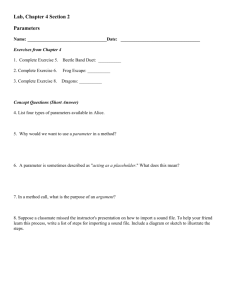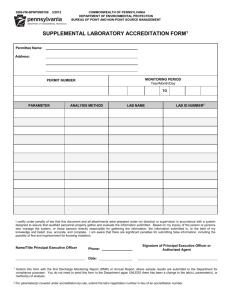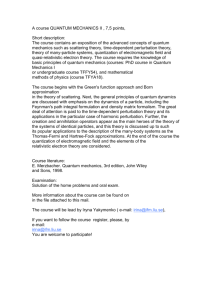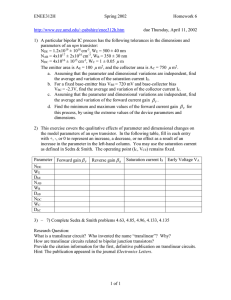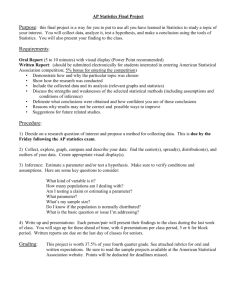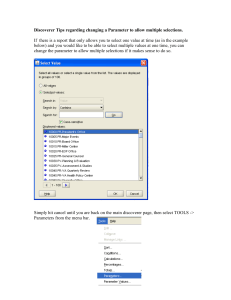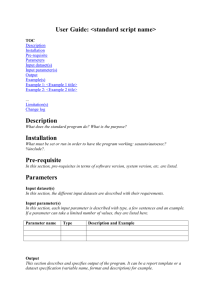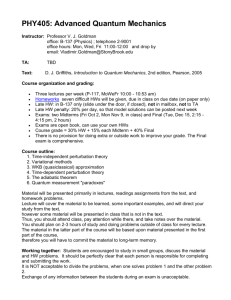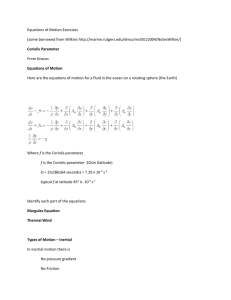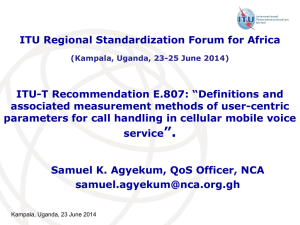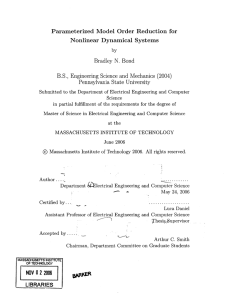Introduction to Modern Physics (PHYSICS 211)
advertisement
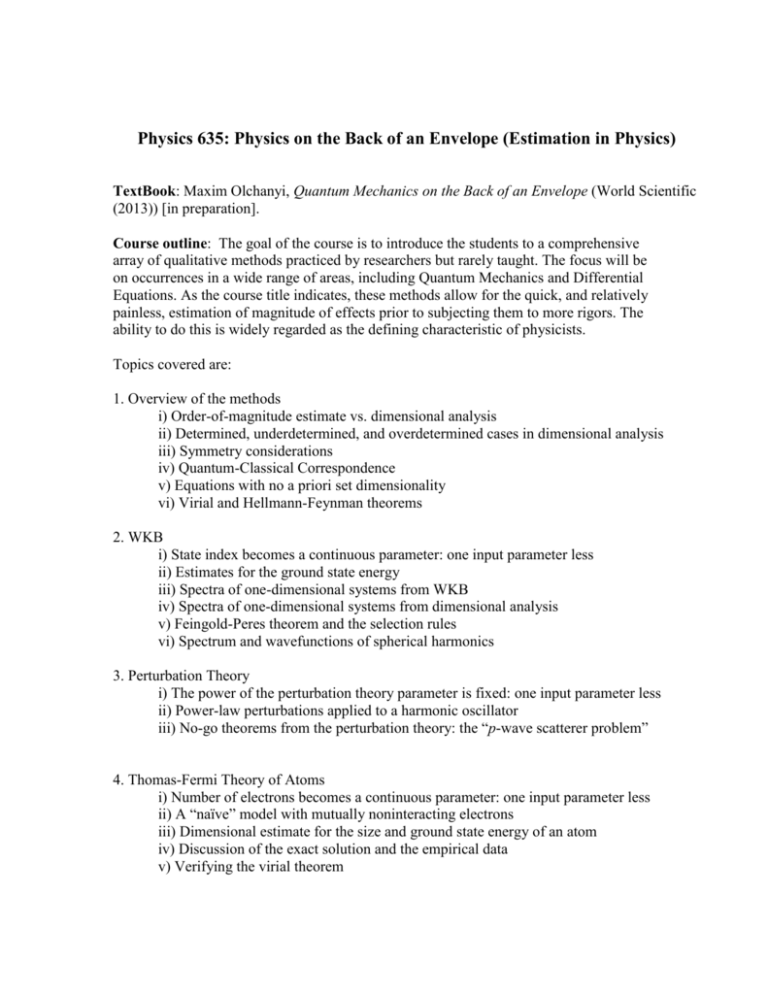
Physics 635: Physics on the Back of an Envelope (Estimation in Physics) TextBook: Maxim Olchanyi, Quantum Mechanics on the Back of an Envelope (World Scientific (2013)) [in preparation]. Course outline: The goal of the course is to introduce the students to a comprehensive array of qualitative methods practiced by researchers but rarely taught. The focus will be on occurrences in a wide range of areas, including Quantum Mechanics and Differential Equations. As the course title indicates, these methods allow for the quick, and relatively painless, estimation of magnitude of effects prior to subjecting them to more rigors. The ability to do this is widely regarded as the defining characteristic of physicists. Topics covered are: 1. Overview of the methods i) Order-of-magnitude estimate vs. dimensional analysis ii) Determined, underdetermined, and overdetermined cases in dimensional analysis iii) Symmetry considerations iv) Quantum-Classical Correspondence v) Equations with no a priori set dimensionality vi) Virial and Hellmann-Feynman theorems 2. WKB i) State index becomes a continuous parameter: one input parameter less ii) Estimates for the ground state energy iii) Spectra of one-dimensional systems from WKB iv) Spectra of one-dimensional systems from dimensional analysis v) Feingold-Peres theorem and the selection rules vi) Spectrum and wavefunctions of spherical harmonics 3. Perturbation Theory i) The power of the perturbation theory parameter is fixed: one input parameter less ii) Power-law perturbations applied to a harmonic oscillator iii) No-go theorems from the perturbation theory: the “p-wave scatterer problem” 4. Thomas-Fermi Theory of Atoms i) Number of electrons becomes a continuous parameter: one input parameter less ii) A “naïve” model with mutually noninteracting electrons iii) Dimensional estimate for the size and ground state energy of an atom iv) Discussion of the exact solution and the empirical data v) Verifying the virial theorem 5. Thomas-Fermi Theory of Bose-Condensates i) Number of bosons becomes a continuous parameter: one input parameter less ii) Speed of sound iii) Healing length and the vortex core size iv) Frequencies of the elementary excitations in traps 6. Solitons in Integrable Nonlinear Partial Differential Equations i) Assigning a “bogus” dimensionality to the parameters ii) Sine-Gordon equation iii) Nonlinear Schrodinger equation iv) Korteweg-de-Vries equation v) Kadomtsev-Petviashvilli equation Pre-requisites: Physics 613: Quantum Mechanics, Atomic and Molecular Physics Physics 616: Mathematical Methods for Physicists Homework: There will be four homework assignments. Exams: There will be one mid-term exam, and one final exam. Grading: The total grade will consist of: assignments 30%, mid-term exam 20%, final exam 50%. Additional texts/references: Vladimir P. Krainov and Kevin Hendzel, Qualitative Methods in Physical Kinetics and Hydrodynamics (American Institute of Physics (1992)) A. B. Migdal, Qualitative Methods in Quantum Theory (Westview Press (2000)) NEQwiki, the nonlinear equations encyclopedia < http://www.primat.mephi.ru/wiki/ow.asp?EquationsList> STATEMENT ON DISABILITY ACCMMODATIONS: Section 504 of the Americans with Disabilities Act of 1990 offers guidelines for curriculum modifications and adaptations for students with documented disabilities. If applicable, students may obtain adaptation recommendations from the Ross Center for Disability Services, M-1-401, (617-287-7430). The student must present these recommendations and discuss them with each professor within a reasonable period, preferably by the end of Drop/Add period. STUDENT CONDUCT The Code of Student Conduct provides a framework of standard acceptable behavior for students. It is set forth to give students general notice of prohibited conduct; it should not be regarded as an exhaustive definition of misconduct or construed as a contract between the student and the University. Students are responsible for understanding and complying with this Code. Copies of the Code of Student Conduct are available in the Office of the Vice Chancellors for Academic and Student Affairs, in the undergraduate catalog and graduate bulletin, in the UMass Boston Student Handbook, and on the University's website. http://www.umb.edu/life_on_campus/policies/code/
